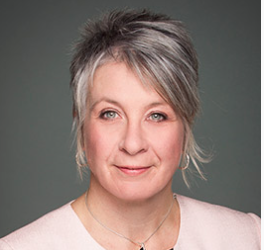rabble is expanding our Parliamentary Bureau and we need your help! Support us on Patreon today!
As Justin Trudeau’s government settles in, women’s rights groups look to this new leadership for action on important women’s issues.
In the mandate letter he wrote to the Minister of the Status of Women, Trudeau outlined several ways he promises to promote gender equality and safety for women. Matters such as missing and murdered Indigenous women, sexual violence and harassment have all made the docket.
Sandeep Prasad, Executive Director of Action Canada for Sexual Health and Rights, says that the Canadian government can address sexual violence and harassment against women by strengthening sexual health curricula throughout the country.
“Issues of sexual violence and harassment really need to be addressed right from the get go, from adolescence,” he said. “We need to see a curriculum that has strong components related to issues of sexual consent as well as diverse sexuality.”
Beyond school curricula, Action Canada also says there needs to be government-supported awareness campaigns. This includes repealing Bill C-36, the Protection of Communities and Exploited Persons Act, which passed last year and was criticized by many as failing to protect the safety of sex workers. Prasad points out that repealing this law was something that, prior to the election, the Liberal Party committed to doing.
Keeping the government accountable in the months ahead, Action Canada will write cabinet ministers with their recommendations and engage the public on these issues.
“We have such an opportunity for positive movement on a range of issues,” said Prasad. “It’s quite an exciting time.”
Another group that was active in the lead up to the election and also hopes to see points in Trudeau’s ministerial mandate letter addressed is the Canadian Network of Women’s Shelters and Transition Houses.
Executive Director, Lise Martin, says the network has formulated a blueprint that they hope the new government will use as a starting point when developing Canada’s National Action Plan on Violence Against Women and Girls. Put together in collaboration with 23 other organizations, the blueprint outlines the importance of developing a process that draws on the diversity, depth of knowledge and experience offered by organizations already working towards ending violence against women. Currently endorsed by 180 organizations, the blueprint acknowledges that women experiencing multiple oppressions face even greater obstacles, discrimination and marginalization which need to be addressed.
Martin says the network hopes funding will be restored to enhance current shelters and build new ones for women.
“There is a high rate of women that are turned away each day from shelters,” she said.
She added that funding would help address the point in Trudeau’s ministerial mandate stating the goal of seeing that “no one fleeing domestic violence is left without a place to turn.”
A third, and highly anticipated element in the mandate letter is developing a process for investigating murdered and missing Indigenous women. According to RCMP reports, between the years 1980 and 2012, there were over 1,100 police-reported cases of homicides and unresolved missing persons cases against Aboriginal women. Trudeau’s mandate clearly states that there is a need to investigate these cases.
Angela Marie MacDougall, Executive Director of the Battered Women’s Support Services (BWSS), points out that while violence against Indigenous women has been documented for the past 30 years and is acknowledged by Trudeau today, it’s an issue that is as old as Canada itself.
“This is not a new issue,” she says. “What’s a big issue today is the fact that the history of the pervasive, gendered and racist violence against Indigenous women is increasingly more visible to mainstream Canadian society. But awareness isn’t enough…what change will come as a result of that awareness?”
Change that MacDougall hopes to see includes federal enforcement of local, behavioural adjustments within police responses towards Indigenous women. For example, she says that women have been struggling to make their voices and issues heard by police across the country — an issue that she wants addressed.
MacDougall also says that the national inquiry into missing women will help with this, but that the new Canadian federal government needs to pressure the RCMP, provinces and municipal governments to address ongoing discrimination of Indigenous women within law enforcement agencies.
While this list of issues is complex, these women’s groups remain hopeful that change will come under this new Canadian government.
“Behavior changes need to happen in Canada as a nation,” says MacDougall. “It’s been really important to have a federal government that’s prepared to examine these issues. It’s very encouraging after decades of this work.”
Alyse is a Vancouver-based writer and editor with a passion for social justice, storytelling and tea. She studied English Literature and Global Development at Queen’s University and believes in the ability to make positive changes through media that digs deep, asks questions and shares narratives. Alyse was the Editor of Servants Quarters and has written for the Queen’s News Centre, Quietly Media and the Vancouver Observer.
rabble is expanding our Parliamentary Bureau and we need your help! Support us on Patreon today!



